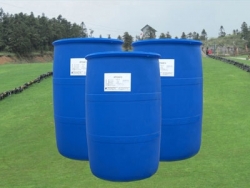The research on the application of surfactants in the field of disinfection has developed rapidly in recent years, and the types and quantities of related products approved for marketing are constantly increasing. To sum up, alkyl glycosides are mainly manifested in four aspects: ① direct use of surfactants with bactericidal effect, and continuously introduce new varieties; 3. Add appropriate amount of antibacterial agent to various cleaning detergents to achieve multiple functions of cleaning, sterilization and sterilization; 4. Use surfactants to change the dosage form and usage method of disinfectants to improve the comprehensive performance of disinfectants.

Surfactant refers to a substance that can significantly reduce the surface tension of a liquid and the interfacial tension of a liquid. Their molecules are composed of polar hydrophilic groups and non-polar hydrophobic groups. The common hydrophilic part is carboxyl group, sulfate ester, sulfonic acid group, amine group, quaternary ammonium group, hydroxyl group, etc., and the hydrophobic part is represented by long-chain alkanes and aromatic hydrocarbons.
Because they have both hydrophilic and lipophilic amphiphilic properties, they can change the surface properties of the cleaning solution during chemical cleaning, making them have lower surface tension, better wettability and foaming properties. Surfactants can be divided into four categories: anionic, cationic, nonionic and amphoteric according to the charge of the surface active part.
The main cleaning agent, corrosion inhibitor and surfactant are the three major components of the chemical cleaning solution. The special chemical structure of the surfactant determines that after the surfactant is dissolved in the liquid solution, the surface tension of the solution is greatly reduced. Improves the wetting ability of the solution. Especially when the concentration of surfactant in the solution reaches the critical micelle CMC concentration, the surface tension, osmotic pressure, viscosity, optical properties, etc. of the solution will change significantly.